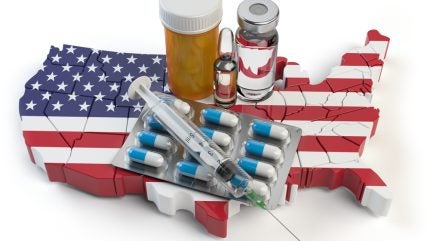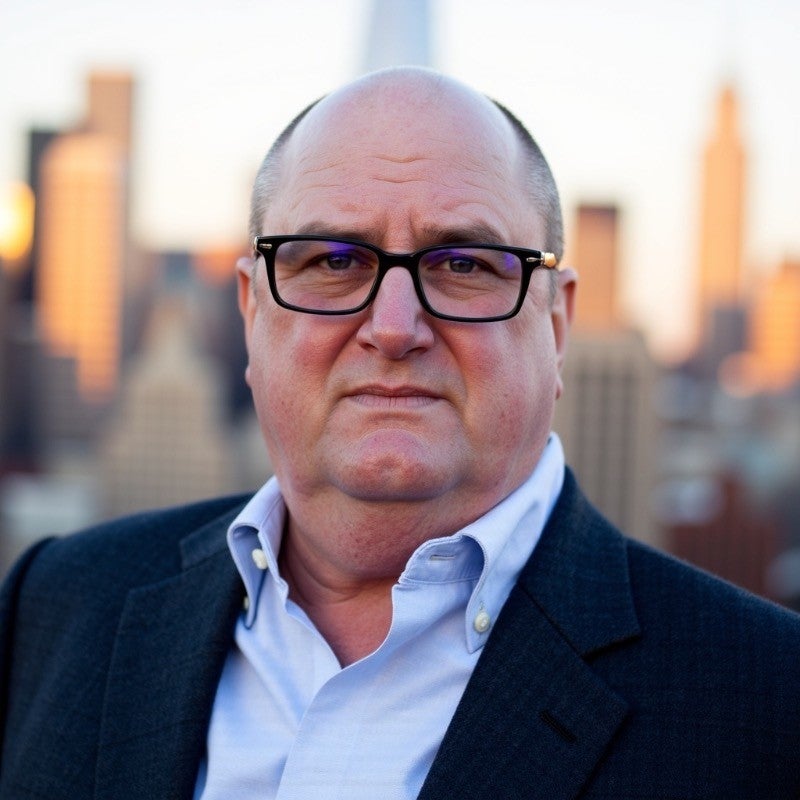
The US has always been a key player in the pharmaceutical industry, with prominent names like Pfizer, Eli Lilly and Bristol Myers Squibb (BMS) all becoming market pioneers in the mid-to-late 19th century.
While China is becoming more of a hub for research activity in pharma, the US does still have the highest number of drugs in active development globally, according to GlobalData, the parent company of Pharmaceutical Technology.

Discover B2B Marketing That Performs
Combine business intelligence and editorial excellence to reach engaged professionals across 36 leading media platforms.
During the space’s evolution, a wide range of prominent biotech hubs have emerged on American soil, with preclinical- to commercial-stage companies flocking to hubs to procure top-quality talent, make use of their infrastructure and strike deals.
Though established locations like Massachusetts, San Diego and New York have traditionally dominated the space, a rise in geopolitical instability across the US has had knock-on impacts on even the mightiest of hubs, with all three experiencing a funding downturn in the H1 2025.
This is partly driven by the Trump administration, which has imposed 100% tariffs on imported branded pharmaceuticals unless a company is building manufacturing facilities in the US. Pharmaceutical companies are now scrambling to onshore drug manufacturing, which has bolstered costs for biotech and pharma companies alike.
This shifting landscape could trigger changes in where companies are positioning themselves across the US, four experts tell Pharmaceutical Technology.

US Tariffs are shifting - will you react or anticipate?
Don’t let policy changes catch you off guard. Stay proactive with real-time data and expert analysis.
By GlobalDataVirginia as an up-and-coming gem
While established hubs continue to catch industry interest, up-and-coming locations are also looking for a slice of the pie. This could soon become a reality for Virginia, as pharma giants Eli Lilly and AstraZeneca have both poured billions into the area this year, highlighting an ignited interest in the south-eastern state.
Acumen Pharmaceuticals, a Massachusetts-based biotech with a strong presence in Virginia, is a business that has believed in Virginia since the start, with the company’s CEO, Daniel O’Connell, noting that big pharma investment will be a “massive boon” to the state’s biotech ecosystem.
However, O’Connell cautions that the state still has some way to go before it can achieve success akin to its more prominent counterparts. “To be successful as an ecosystem, you need talent, capital and technology,” he states.
“Charlottesville and Richmond individually have elements of these three pillars, but not at scale and not in a sustainable way,” O’Connell adds.
For Virginia to truly flourish as a biotech hub, the Acumen CEO believes that the state must attract a broader management talent base, as well as scalable capital, which he believes “will come with further anchor and large pharma investments”.
This could come from investors like Christian Haller, VP, Mid-Atlantic Region at global investment community Keiretsu Forum, who notes that he values Virginia’s efforts to attract business, such as state investments, tax credits and cash rebates, have made it an appealing spot.
“They have a stated goal of being the next Research Triangle, and they seem to be doing everything they can to get there, which will make a huge difference,” Haller says.

North Carolina keeping investors interested
Unlike Virginia’s up-and-coming status, North Carolina’s biotech scene is more established, as companies look to surround themselves with potential big pharma partners such as Merck, Novo Nordisk, Pfizer, Novartis, and Johnson & Johnson – all of which operate across the state.
While open to new hubs, Haller is drawn towards regions like Boston, Massachusetts and the Research Triangle Park (RTP) in North Carolina due to the “large pool of technical personnel with startup experience and university access,” which he believes can “make a huge difference” in the success of a project.
In the wake of significant geopolitical instability in the US, director of life science economic development at North Carolina Biotech, Laura Rowley, agrees that stability and predictability can set a state apart from the crowd.
“Alongside the availability of space in North Carolina, policies made by the state have fostered a business-friendly environment,” she says.
This is partly driven by its appealing corporate tax policy, which sees businesses pay just 2.25% – making it the most competitive state tax-wise in the US. This rate is set to hit 0% in 2030, which Rowley states will be “very attractive for companies with long investment timelines”.
Haller adds that on top of North Carolina’s strong talent base, a reasonable cost of living for staff will also help the region’s presence to “continue growing strongly”.
While O’Connell agrees overall, he notes that North Carolina’s biopharma ecosystem needs to strengthen for it to reach its full potential.

Massachusetts remains a top-tier spot
Up in the north-east of the country, Acumen has placed its headquarters in Newton, Massachusetts – an area that O’Connell believes has been “on fire” in the last 15 to 20 years due to its “robust life sciences ecosystem”.
“Greater Boston and Cambridge are massive areas for industry activity,” he states, citing the healthy presence of research institutions, biopharma, biotech and contract research organisations (CROs), as well as plenty of capital.
Acumen isn’t the only company that believes in Massachusetts, as Korean biotech Medipost first expanded its footprint to the US with its Cambridge headquarters. Originally positioning itself in this area to be near the US Food and Drug Administration (FDA) headquarters pre-Covid to attend meetings, the company’s CEO Edward Ahn, still sees the state’s appeal despite FDA meetings occurring online.
“Over the past few years, there has been a strong accumulation of experience in the Boston area, which allows us to build a team virtually overnight. In another location, that would take us much longer,” Ahn emphasises.
He also touts the connectivity of the Boston area, noting that the “network effect” allows biotechs to easily reach out to neighbours to answer questions they have struggled with.
However, Ahn caveats that the future growth potential of Massachusetts as a leading US biotech hub will depend on National Institutes of Health (NIH) grants, as a lot of Massachusetts-based research projects have or are anticipated to experienced significant cuts at the hands of US health secretary Robert F Kennedy (RFK) Jr and President Donald Trump.
Editor’s note: This article was amended on 14 October to amend Acumen Pharmaceuticals’ headquarters to Newton, Massachusetts, rather than Cambridge, Massachusetts.




